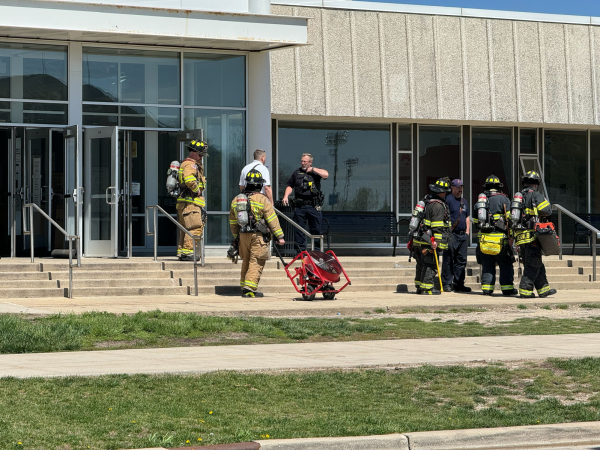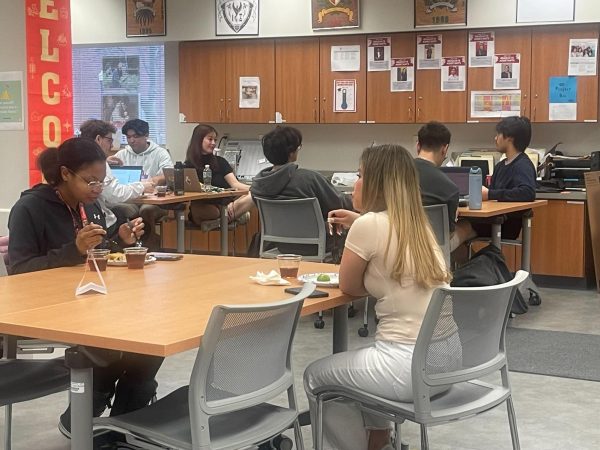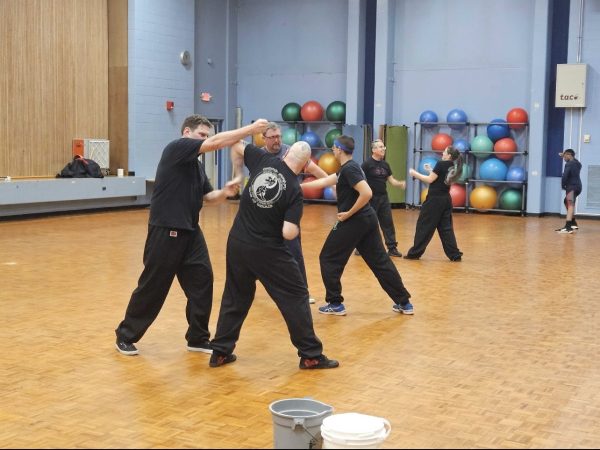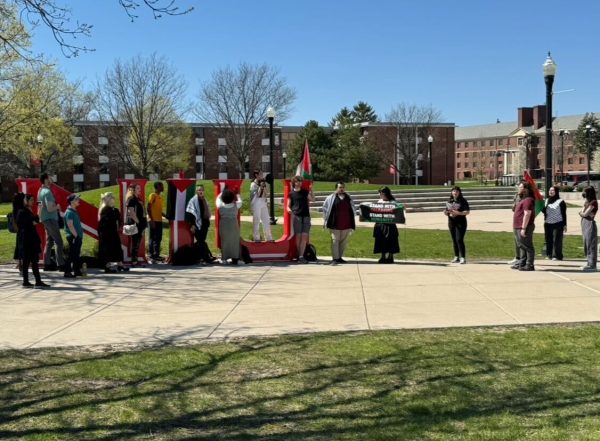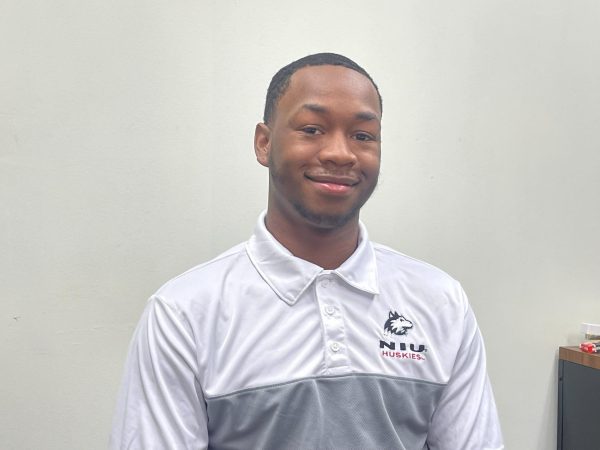University Police lieutenants give presentation at campus security summit
April 15, 2008
The speech
University Police Lts. Darrin Mitchell and Todd Henert addressed the public concerning the Feb. 14 shootings on Monday at the University of Central Oklahoma.
Part of the 2008 National Campus Security Summit, their presentation was billed as “Experiences and Key Lessons Learned from the NIU Tragedy.” They provided an overview of the UP, advice to other campuses and a step-by-step account of the events of Feb. 14.
Mitchell spoke first, introducing some elements of the UP’s philosophy. These elements included establishing preventative measures, reacting to special circumstances, education and preparation.
Mitchell said police presence on campus is an important aspect of prevention, something he stressed as key to the UP’s mission.
“The mindset and the goal is all about prevention,” Mitchell said at the conference.
UP on Feb. 14
Henert then provided an account of the events of Feb. 14, and focused on police actions and procedures. Upon arrival at Cole Hall, the UP set up a perimeter under Lt. Henert’s direction and launched a security sweep of the building after neutralizing the situation in the room, he said. NIU officers also conducted door-to-door searches in the buildings and searched for those in classrooms. They did this, he said, because they were worried victims of the shootings may have fled to these nearby buildings, where they could have been suffering from life-threatening injuries.
The UP then gathered witnesses and conducted interviews. Outside agencies, such as the Bureau of Alcohol, Tobacco and Firearms (ATF) and the FBI, assisted in crime scene investigation and weapon tracing. Henert spoke of the importance of keeping track of the help the UP was receiving from these outside agencies, and how the UP had to coordinate various efforts of the many agencies that came to DeKalb to assist.
One specific instance of this, as described by Henert, was how the UP requested of the Illinois State Police a tactical response team to be available, should something have happened elsewhere while the immediate aftermath of the shootings was being dealt with on campus.
Henert said that schools should work with the community and ensure only requested resources are provided. For example, he explained how a bomb squad made its way to DeKalb when there was never any specific threat of a bomb. Henert said schools should train with the community before events occur and train all officers to handle drastic situations. Henert also spoke about how officers need to know how to use their everyday equipment and be trained in one- and two-men tactics.
Henert said the police have an obligation to protect, and that the first on the scene should be the first to address the problem.
“The first officer on the scene goes in first,” read a slide shown behind Henert and Mitchell throughout their presentations.
“In an instant, more people can be hurt than you can imagine,” Henert said.
Ongoing investigation
“The NIU Police maintain command and control of the investigation,” Henert said, adding that in handling the investigative aspect following the shootings, “We had a number of things to deal with; we’ve had the investigation, we also had ongoing police operations for the community. We didn’t want to micromanage, but we wanted to make sure that we had the people that had the training, that we could trust to conduct the investigation.
“The crime scene processing was conducted by the crime scene investigators from the [FBI] with assistance from the Illinois State Police,” Henert said.
Following the immediate response, Henert explained how all of the 162 students registered for the class in which the shootings took place were located and interviewed. The Illinois State Police conducted those interviews, Henert said.
Other aspects of the investigation, such as looking into the guns used and examining the background of Steven Kazmierczak, also required the assistance of outside agencies, both on the federal and state level.
The training that helped
Mitchell also described the training that NIU Police officers receive and discussed some of the specific training scenarios with which the officers dealt.
Mitchell recommended that other campuses train police officers as EMTs, like the officers at NIU. He said that UP officers being trained as EMTs was valuable on Feb. 14.
“We try and educate the fear out of our community,” Mitchell said.
Lt. Mitchell also discussed the police force’s crisis management program, referred to as “the three ships.” This program consists of “leadership,” “followership” and “relationship.”
Mitchell also described the “active shooter plan,” which included realistic training scenarios based on past occurrences and similarities among school shooting events.
The police force then gathered witnesses and conducted interviews. Outside agencies such as the Bureau of Alcohol, Tobacco and Firearms (ATF) and the FBI assisted in crime scene investigation and weapon tracing.
Henert said that schools must work with the community and provide only the resources that are requested. Henert said that schools should train with the community before events occur and train all officers to handle drastic situations. Henert also spoke about how officers need to know how to use their everyday equipment and be trained in one- and two-men tactics.
Henert said the police have an obligation to protect, and that the first on the scene should be the first to address the problem.
“The first officer on the scene goes in first,” read a slide shown behind Henert and Mitchell throughout their presentations.
“In an instant, more people can be hurt than you can imagine,” Henert said.
Henert declined to comment Thursday afternoon with regard to his participation at the summit. Chief Donald Grady and Mitchell didn’t return phone calls after messages were left for them by the Northern Star on Thursday.


